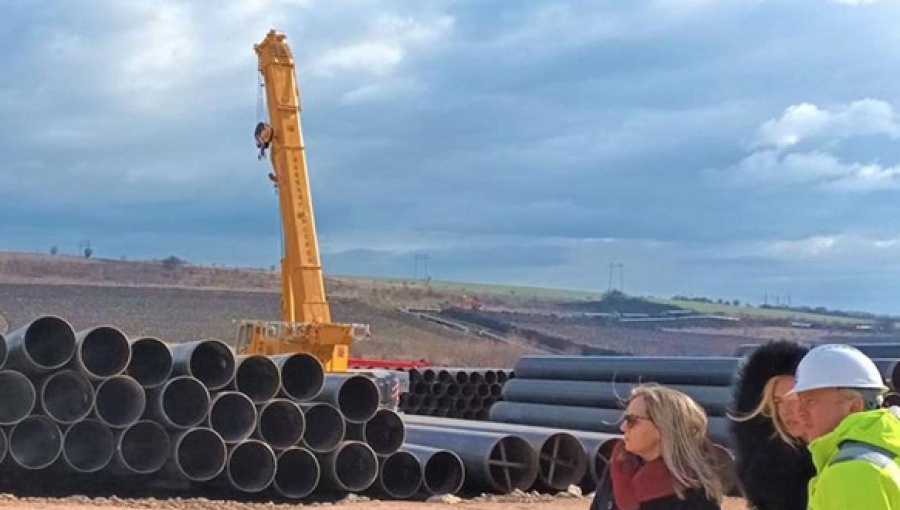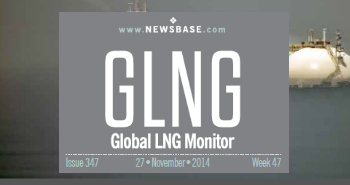CEE Bankwatch slams new wave of Balkan gas projects

CEE Bankwatch Network has strongly criticised the European Commission and international development banks for their support for fossil fuel projects – specifically gas – in Southeast Europe.
The region has gained some major gas transportation infrastructure in recent years, including the Trans-Adriatic Pipeline (TAP) and Croatia’s offshore Krk liquefied natural gas (LNG) terminal, and several other interconnector projects are underway as countries in the region seek to reduce their dependence on Russian gas by enabling gas imports from different sources.
Campaigners from CEE Bankwatch contest assertions that gas is a useful transition fuel in the shift away from coal power, and argue that building new gas infrastructure will not help importing countries achieve energy independence. Instead, they call for development banks and other international institutions to redirect funding to green energy projects.
The call is particularly directed at the European Bank for Reconstruction and Development (EBRD), which is preparing to approve its energy strategy for the next five years. However, according to CEE Bankwatch, with a few exceptions, other international financial institutions (IFIs) also finance fossil fuel projects in Emerging Europe.
Changed priorities
The energy crisis triggered by Russia’s invasion of Ukraine has changed attitudes to energy security, leading governments to prioritise ensuring sufficient energy supply for their populations (even if this means turning back to increased reliance on polluting coal power) over the green transition, at least in the short term. Longer-term, there is an understanding that renewables will help countries achieve both carbon neutrality and energy security.
“Before the escalation of the Russia war with Ukraine, there was really a strong group of progressive countries, mostly EU members. Now, everybody is concerned with energy security,” said CEE Bankwatch gas campaigner Gligor Radecic in an interview with bne IntelliNews.
This is particularly evident in the Western Balkan region where, despite the need to cut emissions, several countries have embraced gas in recent years. The TAP crosses the region, and there are also plans to build more LNG terminals. Indeed, politicians from several countries have voiced ambitions to turn their states into gas hubs for the region.
The latest was Montenegro, where European Commissioner for Enlargement Oliver Varhelyi announced recently that the EU will support construction of an LNG terminal and gas power plant – despite the country not having any gas distribution infrastructure at present. Moreover, according to CEE Bankwatch, the length of time needed to build the terminal and its estimated cost mean it is not likely to be economically viable unless it continues operation after 2050.
“We do not believe gas can provide any energy security. It’s the exact opposite; we’ve seen super volatile prices and even if the EU is not importing so much fossil gas from Russia, replacing it with other sources like Azerbaijan cannot be considered facilitating energy security. We do not believe Europe should be using fossil gas from authoritarian regimes,” said CEE Bankwatch’s communications officer Ido Liven.
By contrast, Radecic and Liven argue that the Western Balkans has plenty of opportunity to invest in renewables – especially solar power given its sunny climate – to achieve the goal of energy security.
Mixed progress
Development banks and other major institutional investors in the region have made mixed progress in ending investment into fossil fuel projects. Most have ended their investments into coal, but still fund gas projects. Radecic argues this is problematic given the huge need for investment into the energy transition.
The EBRD is expected to adopt its new energy strategy covering the next five years within the next month. A spokesperson for the EBRD told bne IntelliNews that the bank is not currently in a position to comment on details of the new strategy.
However, according to Radecic, it became clear during the consultation process for the draft strategy that the bank is “keeping the opportunity to finance midstream and downstream gas in its countries of operation”.
That mainly concerns gas projects, seen as a transition fuel for countries weaning themselves off coal power but not yet ready to transition fully to renewables. A number of these are in the Western Balkans, although there is also understood to be interest in gas projects among the EBRD’s countries of operation in Central Asia and the southern and eastern Mediterranean (SEMED).
In Kazakhstan, for example, the bank is financing a project to convert the Combined Heat and Power Plant 2 in the country’s largest former capital Almaty from coal to gas in a bid to reduce the severe air pollution in the city.
In North Macedonia, the bank has confirmed plans to support ambitious investments into renewables, but at the same time is understood to be looking at the North Macedonia-Greece interconnection that would allow North Macedonia to import gas via Greece.
“Our biggest fear is the EBRD still continuing to finance fossil fuels,” said Radecic. “We have to acknowledge there are some improvements within the strategy, such as a stronger emphasis on development of renewables, also development of the electricity grids – transmission and distribution – which was neglected in the previous strategy, but still the EBRD is keeping the opportunity to finance upstream and downstream gas in its countries of operation.”
While the bank has said it will support these investments only if aligned with the Paris Agreement and the target of limiting the global temperature rise to 1.5°C, Radecic argues that “fossil fuels cannot be compatible with those things”.



Follow us online